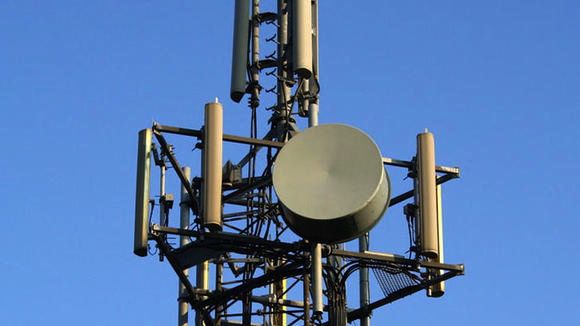T-Mobile lobbies FCC to approve controversial Verizon spectrum swap
Company does a 180 on its position concerning the deal

T-Mobile has been one of the most vocal opponents of Verizon's attempts to purchase speedy AWS spectrum bands from cable companies, but the carrier flip-flopped last week after reaching an agreement with Verizon.
Not only has T-Mobile silenced its criticisms, the wireless service provider is now lobbying the Federal Communications Commission on behalf of its competitor.
There is something in it for T-Mobile if Verizon's proposal - which would allow the latter to purchase unused AWS spectrum from SpectrumCo, a joint venture of Comcast, Time Warner, Bright House and Cox - is approved.
Should the FCC give the go-ahead, Verizon has agreed to a trade with T-Mobile that'll reportedly benefit both companies.
According to T-Mobile, the agreement will allow the carrier to swap AWS spectrum bands with Verizon "to create more contiguous blocks of spectrum and re-align spectrum in adjacent markets."
T-Mobile executives met with FCC chairman Julius Genachowski and other FCC officials last week to discuss the arrangement, telling them the spectrum swap would alleviate its previous concerns with the Verizon purchase.
The R-T-G gets M-A-D
Despite T-Mobile's support, there remain vocal opponents to Verizon's plan.
Get daily insight, inspiration and deals in your inbox
Sign up for breaking news, reviews, opinion, top tech deals, and more.
The Rural Telecommunications Group is among the most adamant opponents of Verizon's proposed purchase and it didn't sit by silently as T-Mobile and Verizon reached the trade agreement.
In a scathing filing the FCC rejected when it met with T-Mobile last week, RTG wrote that the Verizon/T-Mobile swap agreement "does precious little to limit the spectrum aggregation and anticompetitive practices of Verizon.
"Nor does approval of those applications necessarily make T-Mobile a stronger market player," contrary to what T-Mobile told the FCC.
"What the announced deal does accomplish," the filing continued, "is to distract consumers by drawing their attention away from the new axis formed by the [cable companies] and Verizon and the hyper-concentration of spectrum in the hands of Verizon.
"This sale-and-swap between Verizon and T-Mobile was designed to mimic a large, voluntary divestiture when it in fact does nothing more than buy the silence of a once vocal critic of Verizon's transaction with the cable companies.
"Verizon is giving up little of its spectrum depth and the deal with T-Mobile addresses zero of the anticompetitive concerns raised by dozens of parties, including RTG."
T-Mobile defends the deal
Back in April, T-Mobile accused Verizon of hoarding unused AWS spectrum bands to stifle competition.
But the carrier says its new deal with Verizon "will enable T-Mobile to deploy LTE services in a number of markets where such deployment would otherwise have been impossible, and to enhance its LTE service in a number of additional markets where T-Mobile would have otherwise been limited to a 5x5 MHz LTE deployment."
T-Mobile told the FCC it will be able to expand services to 60 million additional people.
If approved, the trade between T-Mobile and Verizon will see AWS bands trade hands in 17 CMAs in the western U.S.
Neither carrier yet supports a device capable of connecting to the lighting-fast AWS spectrum bands, but T-Mobile promises that it will eventually be able to launch LTE networks at 10x10 MHz.
That's if the deal is approved, which, despite criticism, is likely to happen by the end of the summer.
Via Fierce Wireless
Michael Rougeau is a former freelance news writer for TechRadar. Studying at Goldsmiths, University of London, and Northeastern University, Michael has bylines at Kotaku, 1UP, G4, Complex Magazine, Digital Trends, GamesRadar, GameSpot, IFC, Animal New York, @Gamer, Inside the Magic, Comic Book Resources, Zap2It, TabTimes, GameZone, Cheat Code Central, Gameshark, Gameranx, The Industry, Debonair Mag, Kombo, and others.
Micheal also spent time as the Games Editor for Playboy.com, and was the managing editor at GameSpot before becoming an Animal Care Manager for Wags and Walks.
